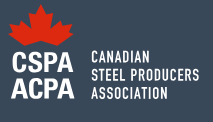Canada

June 27, 2024
CSPA cheers Canada decision to investigate Chinese EVs
Written by Ethan Bernard
The Canadian Steel Producers Association (CSPA) has lauded Canada’s decision to investigate China’s unfair trade practices in electric vehicles (EVs).
However, the association hopes the government will go even further and extend the investigation into other sectors.
Canada to launch investigation
The Canadian government announced on July 2 that it will launch a 30-day consultation on potential policy responses to protect Canada’s auto workers and its growing EV industry from unfair trade practices.
“The government will also consider perspectives on policies driving China’s overcapacity and surging exports of EVs, including labor and environmental standards, and unfair and non-market practices,” the Canadian federal government said in a statement on Monday.
CSPA responds but wants more
On the whole, the CSPA applauded the decision.
Catherine Cobden, CSPA president and CEO, said in a statement that the “announcement signals that the federal government is now realizing the devastating impact of Chinese excess industrial capacity on domestic jobs and competitiveness in Canada.”
However, she noted that the consultations, as presented, are “insufficient” to address the magnitude of the problem.
“As a major player in the automotive supply chain, we urgently call on the government to expand these consultations to include other industry sectors that are at the mercy of intentional actions by China to erode Canada’s competitiveness and that of its allies,” she said.
Given Chinese overcapacity, she commented that it was “unsurprising” that the US government targeted Chinese steel in its May 14 Section 301 announcement to hike tariffs on the Asian nation.
“We need to stand with the United States and ensure action is taken across the automotive supply chain. We need to act, and we need to act fast,” Cobden said.






